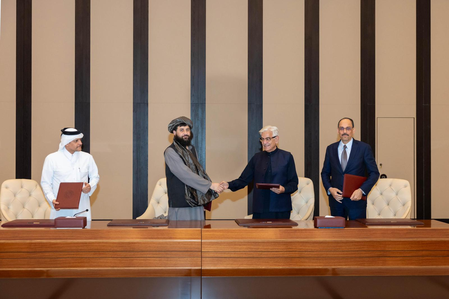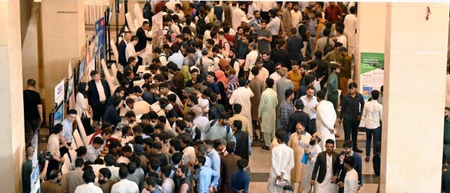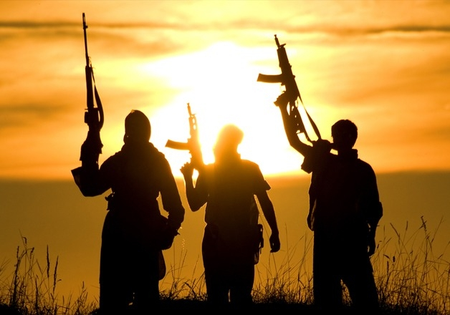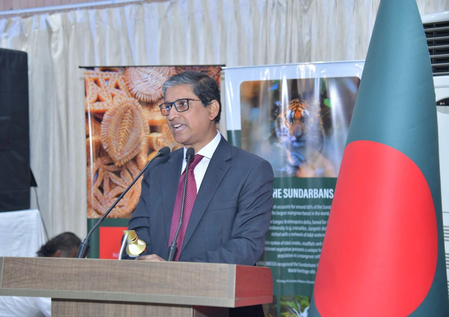
New Delhi, Oct 21 (IANS) The weekend Doha talks did produce an immediate ceasefire between Pakistan and Afghanistan with an agreement to hold follow‑up meetings and verification mechanisms to sustain the truce, but did not mention any specific international borderline.
This will likely weigh upon the delegations from these neighbours meeting for another round of peace talks on October 25 in Istanbul, with Turkey and Qatar as negotiators.
The participants will need to address deep structural issues such as border demarcation disputes, militant sanctuaries, and mutual distrust remain unresolved and could rekindle violence if follow‑up talks stall.
Earlier, dozens of people were reported killed and hundreds wounded along the demarcating Durand Line, with many families forced to flee in what was the worst bout of violence since the Taliban gained control of Kabul in August 2021.
The fierce firefight that erupted on October 11 was preceded by several skirmishes at multiple fronts along the 2,600-km border.
Soon after the release of an official statement from Qatar, Afghanistan’s former Vice-President Amrullah Saleh claimed in a social media post that it had “retracted its earlier statement”, removing the “misplaced term border”, which “the Afghan people recognise as the Durand Line only”.
He added, “This retraction followed a strong reaction from the broader Afghan population, even though the Taliban had initially endorsed it.”
Saleh’s government had to step down, with prominent leaders going into hiding, when the Taliban took control of Kabul on August 15, 2021.
Media group Afghanistan International claimed that the Taliban’s Defence Minister, Muhammad Yaqoob Mujahid, who led his country’s delegation for the Doha talks, has claimed that there was “no discussion about the Durand Line in the recent agreement with Pakistan”.
In an online press conference from Doha, he called the Durand Line an “imaginary line”, it said, adding, “The remarks appear to be in response to political activists’ doubts about the clause on “respect for the territorial integrity” of the two countries.”
Such views blur the existence of a line demarcating two landlocked countries, leading to chaos.
Afghanistan historically disputes the Durand Line, laying a claim to large Pashtun-majority areas inside Pakistan, with the idea of a separate ‘Pashtunistan’.
Such areas include former Federally Administered Tribal Areas (FATA), now merged into Khyber Pakhtunkhwa province.
It includes Peshawar, Kohat, Dera Ismail Khan, Swat and adjacent Pashtun-dominated areas like parts of Balochistan.
The core of the claim dates to the 1893 Durand Line agreement that divided Pashtun tribal lands between colonial India and Afghanistan.
Since then, many Afghan governments have rejected the demarcation.
However, Pakistan administers these areas and the international community recognises the Durand Line as the de-facto border.
But tensions continue over the line, occasionally leading to armed skirmishes.
Recent fights erupted after Islamabad bombed several cities inside Afghanistan, claiming to target terror groups working against Pakistan’s interests.
The Taliban has denied allegations of harbouring such terror groups, accusing the neighbour of spreading misinformation.
Pakistan’s Foreign Minister Ishaq Dar’s Kabul visit this April and talks with his counterpart Amir Khan Muttaqi was viewed by many as the beginning of the end of hostilities between two former allies.
Subsequent meetings between the two in May and August, brokered by China, reinforced that sentiment.
Beijing has also held as many as six formal trilateral foreign ministers’ dialogues, the latest being on August 20.
These meetings were ostensibly aimed at developing working relations among the three nations, with focus on counter‑terrorism and regional connectivity.
The path to a peaceful neighbourhood thus lies in identifying a mutually agreed working boundary, which will then led to respecting the territorial integrity of the other.
–IANS
jb/khz




